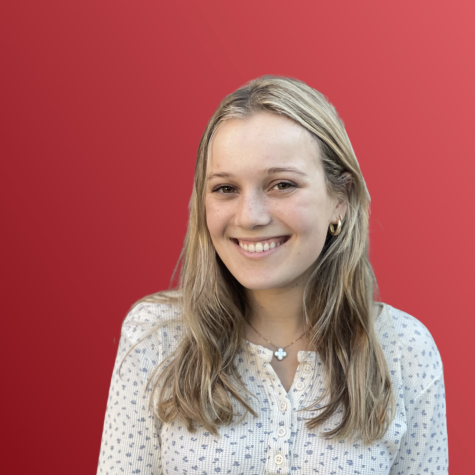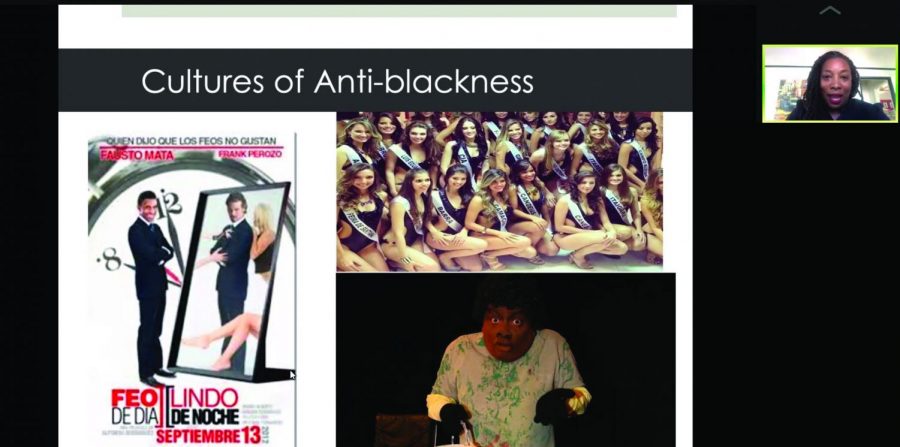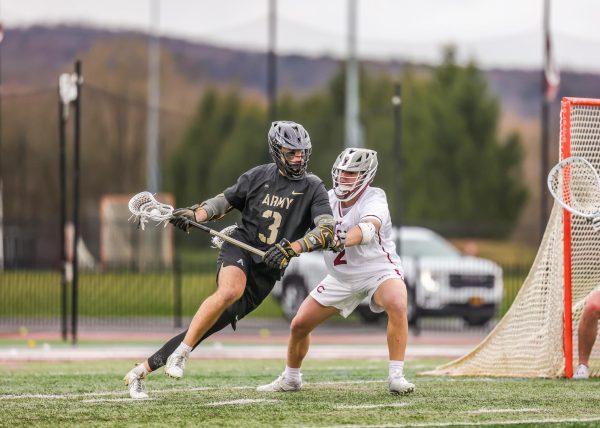Annual Shirley Graham And W.E.B. Dubois Lecture Hosts Dr. Tianna Paschel
For the department’s annual Shirley Graham and W.E.B. Dubois’ lecture, the Africana and Latin American Studies Program (ALST) hosted Dr. Tianna Paschel to discuss the multiplicity of racial identity. Paschel is an assistant professor in the Department of African American Studies at the University of California, Berkeley and came to Colgate to speak on Thursday, Oct. 22.
“The Dubois Lecture is really about inviting scholars whose work deals with race and social justice,” Associate Professor for LGBTQ Studies and Coordinator for Latin American studies Danny Barreto said. “Each year we rotate between having the lecture focus on either African, Latin American, Caribbean or African American studies.”
Paschel said that this is both a very difficult and exciting time to begin a conversation about race.
“We are starting off this conversation in a very troubling time, but also a very invigorating time,” Paschel said. “It’s a time of unrest and politicization. It is a time of activism and resistance in both the United States and throughout both Latin America and the Caribbean. It also is a time where a lot of the rights that activists fought so hard for over the last three decades in Latin America are being unraveled.”
Paschel continued by sharing a fact with the audience: only five percent of enslaved Africans transported in the transatlantic slave trade arrived in the United States. The overwhelming majority, 95%, arrived in Latin America and the Caribbean.
“I think this serves as a reminder of the need to really think about what places we center in our conversations around Blackness around the globe, and how we can think about Blackness in this hemisphere as a whole and bring Latin America and the Caribbean to the center of these conversations,” Paschel said.
Paschel also shared a clip from a music video titled “De Donde Vengo Yo” by Chocquibtown, a hip hop group based in the Chocó region of Colombia. The video title translates to “This is where I come from,” and shows a celebration of Afro-Latin identity. Paschel also touched on anti-Blackness in pop culture and the media, as well as representations of the Black populations in Latin America.
“We felt it was important to address Blackness in Latin America, given what is going and the kinds of conversations we are having in the U.S.,” Barreto said. “We are having these conversations on campus, and the Colgate Student Coalition had a number of events about anti-Black racism within Latinx communities.”
The lecture series finished with a thirty-minute Q&A, during which students were able to submit questions through the chat function of Zoom. Students engaged in conversation throughout the lecture by submitting thoughts and questions to Paschel, according to junior Riley James.
“Dr. Tianna Paschel talked a lot about how different nuances of racism in different countries, such as Colombia, are very different than they are in America,” James said. “It is really fascinating to think about how racism in Latin America and the U.S. often manifests in spoken regional and spatial terms, rather than explicitly stated, which makes the problem far more complex.”
Paschel closed her talk by asking the audience to be mindful of the specificities of political and cultural context and reminding them that there is space for multiplicity in identity.
“There is more to be learned from thinking theoretically about how power functions, how inequality reproduces itself, and how people use resistance,” Paschel said.

Sophie Mack is a senior from San Francisco, CA concentrating in art history and minoring in political science. She has previously served as a staff writer...







